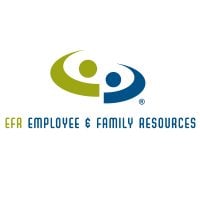Everest Institute
Drug Rehab Center in Urbandale, Iowa
Everest Institute in Iowa provides individualized treatment for addiction and substance abuse, offering a range of evidence-based practices, a multi-disciplinary approach, and comprehensive services including Medication-Assisted Treatment and addiction-specific psychiatric services.
About Everest Institute in Iowa
Everest Institute, located in Urbandale, Iowa, is an outpatient substance abuse and mental health facility dedicated to helping individuals struggling with alcohol and/or drug addiction. With a team of highly experienced addiction specialists, Everest Institute provides individualized treatment in a safe and supportive environment.
• Comprehensive services include acute and partial hospitalization, as well as specialized individual, family, and group counseling
• Evidence-based practices such as Cognitive Behavioral Therapy, Dialectical Behavioral Therapy, and Mindfulness-Based techniques are utilized
• Medication-Assisted Treatment for opioid addiction and addiction-specific psychiatric services are available
• Unique Veteran's Program tailored to meet the specific needs of the veteran community
Everest Institute is accredited by the Joint Commission and has earned their prestigious Gold Seal of Approval for achieving the highest standards of service in the industry. They are also licensed by the Iowa Department of Public Health and certified by SAMHSA.
Everest Institute treats a wide range of substance abuse issues, including alcohol, opioids, and other drugs. They employ a multi-disciplinary approach that addresses not only the addiction itself but also the underlying causes and contributing factors, considering all aspects of a client's life.
Genders
Ages
Modality
Additional
Accreditations
State License
SAMHSA
Conditions and Issues Treated
Substance abuse is a severe problem that affects many people in Urbandale, IA. It is characterized by the excessive and inappropriate use of drugs, including alcohol, medications, and illicit drugs. Substance abuse can lead to physical or psychological dependence and affect social life and relationships. Treatment options include medications, counseling sessions, behavioral therapy, and group therapy. If you are suffering from substance abuse, contact for the latest treatments available.
Opioid addiction is when someone becomes addicted to opioids. This can happen quickly due to any opioid use. Opioid withdrawal can be uncomfortable and lead the user to continue using even if they want to quit. It’s best to receive inpatient treatment for detoxification.
Even if a person doesn’t need inpatient treatment, it’s recommended to start rehabilitation or at least some kind of outpatient treatment. This is because the withdrawal symptoms from opioids can be uncomfortable and unpleasant, to the point that a person could end up using again or worse.
Detoxification should be done to break the physical addiction of opioids. This can be done with opioid replacement therapy, medication-assisted therapy, or a more traditional detoxification program. Intensive outpatient treatment is a form of addiction care that allows patients to continue living at home while undergoing treatment. This type of care is appropriate for patients who have been treated in residential treatment programs. Intensive outpatient programs include regular visits to the facility providing therapy, and patients gradually return to their routine life. IOP benefits most when patients have a supportive family member or friend to help them recover.
The first step to getting into an intensive outpatient program is to attend a detoxification facility. Detoxification facilities are designed to remove substances from the body safely. The patient will attend sessions designed to help them understand their addiction and its impact on their lives. While in an intensive outpatient program, therapy sessions are scheduled three to five times per week, with the patient attending no more than two sessions in one day.
Levels of Care Offered
This center offers a variety of custom treatment tailored to individual recovery. Currently available are Drug Rehab, Intensive Outpatient, Outpatient, with additional therapies available as listed below.
An intensive outpatient treatment program, or IOP, is set up for those struggling with an addiction to begin the recovery process. However, the patient will not live at the facility during treatment.
IOP involves patients coming in and out of a medical office building regularly to receive therapy and other services while continuing their life outside of these visits.
IOP is a step up from drug detoxification or alcohol detox. However, it’s still considered a phase of recovery rather than the ultimate goal. There are many rehabs and treatment facilities available to patients in need of IOP.
Outpatient treatment consists of counseling and therapy sessions. The outpatient treatment process begins with the addict’s initial detox period, lasting about ten days. Outpatient treatment is used for those who are at moderate risk for “slipping back” into the addiction. It is also used for those who are not currently experiencing any side effects from withdrawal, can handle social pressure, have a stable living environment, and have a good support system.
Therapies & Programs
Individual Therapy is a crucial component of addiction recovery. Therapists work with patients to identify the root of their addiction and figure out how to better handle the issues that led to them using drugs. Individual Therapy is one on one sessions where people meet with their therapist. Individual therapy provides a safe space for people to open up and discuss personal and sensitive topics which they may not feel comfortable discussing in a group setting.
In this type of therapy, therapists can develop specific solutions for each patient, which helps speed up their recovery process. In addiction recovery, therapy is a crucial part. It allows patients to go deep into their core issues and discover how those problems can be better handled now. Therapy can be performed in individual sessions as well as group settings. In individual therapy for addiction, the patient meets with the therapist one-on-one to focus on the underlying issues of addiction and come up with solutions to prevent future abuse.
Group Therapy is employed by drug treatment centers like Everest Institute to provide the recovering addict with a platform to talk about their feelings and experiences. It also provides for an opportunity to learn from other addicts who have successfully overcome their addiction. It is recommended that all group members be recovering addicts for this type of therapy to work.
Cognitive Behavioral Therapy (CBT) is an approach and method in psychotherapy. Everest Institute asks people to investigate how their thoughts, including habitual, harmful, and inaccurate ways of thinking, affect behaviors. CBT is based on the idea that rigid, inflexible ways of thinking cause people to have a limited ability to cope with stress, which leads to emotional distress.
Likewise, CBT helps people identify maladaptive behaviors and replace them with more positive behaviors. It makes you look at the way you perceive something and ask: Is this a realistic belief? CBT asks people to look at the role of behaviors and emotional responses and how they may be distressing in one’s life. The goal of CBT is to change the way people think and behave to achieve a more balanced, healthier lifestyle.
Moreover, CBT has been shown to reduce some types of anxiety disorders, depression, and symptoms related to thoughts or actions that are considered harmful.
Life Skills Services provide services aimed at helping people enter into and maintain long-term sobriety. The services are offered at varying levels of intensity, specific to the needs and requirements of each patient. Some benefits of these services are restoring hope and empowerment, enhancing family involvement, increasing patient compliance, and reducing relapse rates.
Training someone on improved life skills allows someone recovering from an addiction to feel more capable of taking care of him or herself. The skills taught in Everest Institute are daily skills that give a better recovery foundation by simply giving the person tools they need to survive.
Payment Options Accepted
For specific insurance or payment methods please contact us.
Is your insurance accepted?
Ask an expert, call (888) 674-0062
Additional Details
Specifics, location, and helpful extra information.
Urbandale, Iowa 50322 Phone Number(515) 412-5112 Meta DetailsUpdated April 15, 2024
Staff Verified
Everest Institute Patient Reviews
There are no reviews yet. Be the first one to write one.
Urbandale, Iowa Addiction Information
Iowa ranks 2nd lowest in the nation for illicit drug use, but 12% of its residents are still using these drugs every single year. Methamphetamines account for more than 90% of all drug-related prison admissions in Iowa. Alcohol is the most widely abused substance in the state, with 23% of residents admitting to heavy drinking.
About 9,000 people are addicted to drugs in Urbandale, Iowa. This accounts for about 7% of the population. 46% of all drug overdose deaths are from opioids. Drug addiction can have a serious impact on not just the addict but also their family, friends, and the community as a whole. Drug rehabilitation programs in Urbandale, Iowa, typically focus on helping individuals overcome their addiction and improve their overall health and well-being.
Treatment in Nearby Cities
- Independence, IA (111.5 mi.)
- Reserve, IA (108.8 mi.)
- Corning, IA (67.8 mi.)
- Urbandale, IA (1.3 mi.)
- Fredericksburg, IA (121.9 mi.)
Centers near Everest Institute
The facility name, logo and brand are the property and registered trademarks of Everest Institute, and are being used for identification and informational purposes only. Use of these names, logos and brands shall not imply endorsement. RehabNow.org is not affiliated with or sponsored by Everest Institute.











